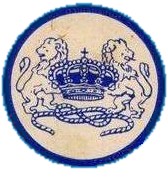People's Monarchist Party Partito Monarchico Popolare | |
|---|---|
 | |
| Secretary | Achille Lauro |
| Founded | June 2, 1954 |
| Dissolved | March 7, 1959 |
| Split from | National Monarchist Party |
| Merged into | Italian Democratic Party |
| Headquarters | Naples, Italy |
| Ideology | Monarchism [1] |
| Colours | Blue |
The People's Monarchist Party (Italian : Partito Monarchico Popolare, PMP) was an Italian conservative party founded in 1954 by a split from the National Monarchist Party. It was led by Achille Lauro, long-time Mayor of Naples. It took part in the 1958 election and won 14 seats to the Chamber of Deputies and 5 seats to the Senate. [2]
Contents
In 1959, after this good result (2.6%, while the rival PNM scored just 2.2%), the party re-joined the National Monarchist Party to form the Italian Democratic Party, latterly named Italian Democratic Party of Monarchist Unity .